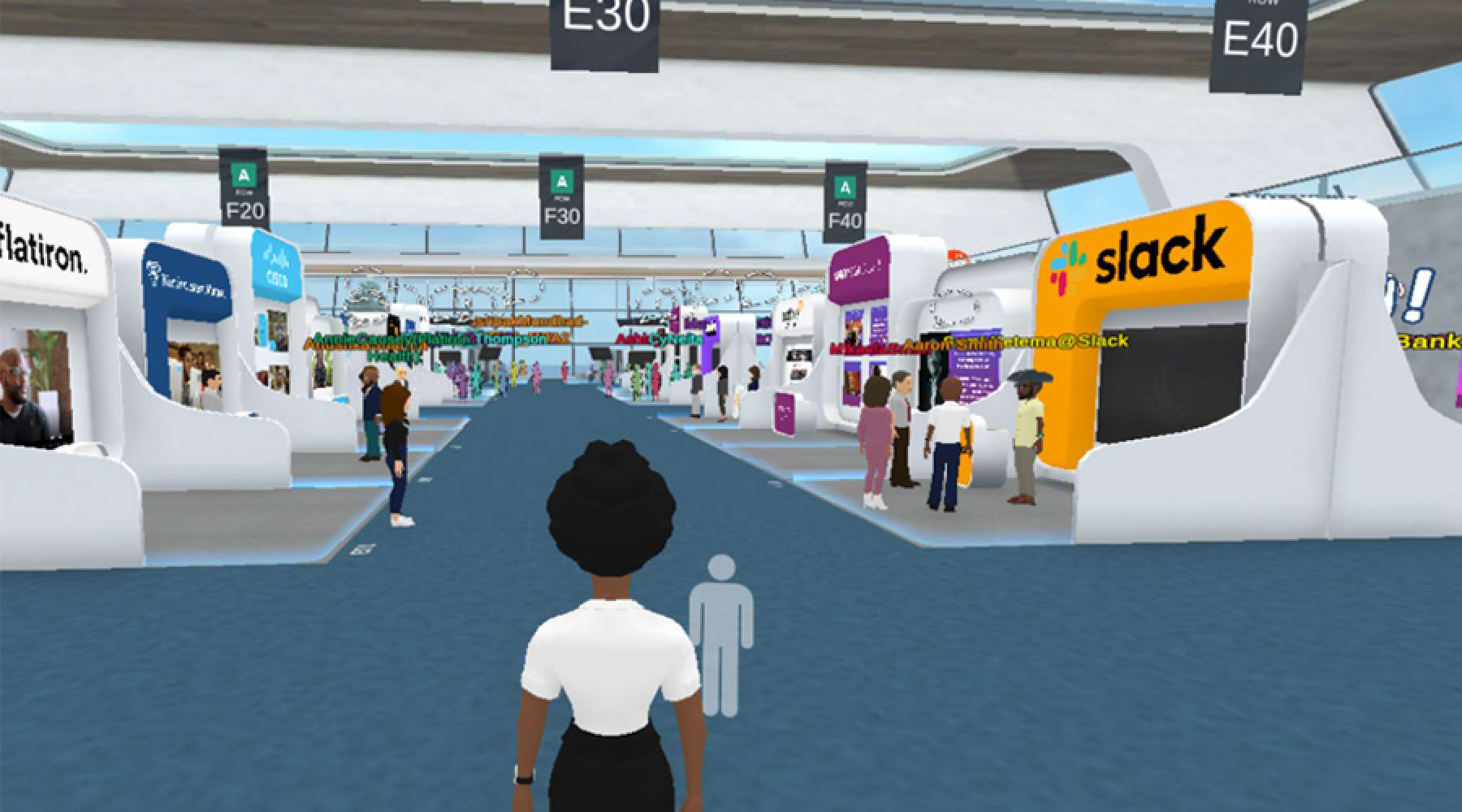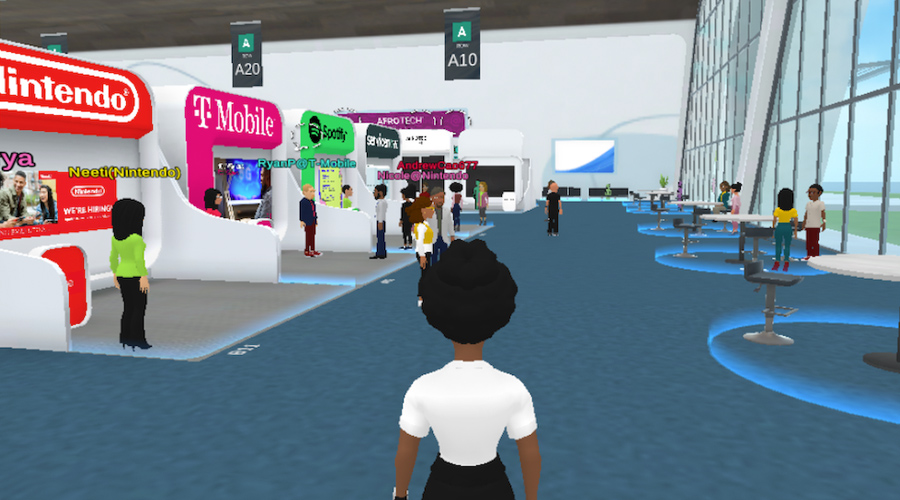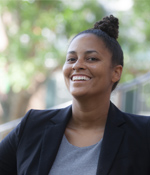
Prior to Tuck, I spent seven years working for educational nonprofits. My goal in attending an MBA program was to career shift and find a career pathway where I could accelerate my impact. Thanks to the help of Tuck’s amazing career resources, classmates, and alumni network, I secured an internship this summer at Microsoft and spent 12 weeks working with their U.S. Education Team as a modern workplace specialist.
When I received a full-time offer from Microsoft at the end of my internship, I was thrilled. I’m really excited to be pivoting into tech; however, I can still feel a bit overwhelmed by how much I still have to learn about the tech industry. In my second year at Tuck, I have tried to be proactive about guiding my own learning and preparing as much as possible for this transition by being intentional with my elective choices and extracurricular activities.
With the support of the MBAPO and Office of the Dean, I was able to attend AfroTech in November of 2020. AfroTech is “one of the largest multicultural tech conferences in the United States, bringing together engineers, venture capitalists, recruiters, technologists, and culture enthusiasts from all over the world. Started in 2016, it is the definitive conference that brings leaders in technology and business together to exchange ideas and build a strong Black tech community.
With the COVID-19 pandemic still very present, the conference was hosted virtually for the first time. Given the Zoom fatigue from classes, I was initially apprehensive about more screen time, but I was pleasantly surprised by how AfroTech was able to leverage their tech savviness to create a unique and engaging experience for participants.

AfroTech World was the virtual location of the conference. Participants were able to create avatars and then navigate them through the virtual World for the duration of the conference. The conference’s schedule showed which sessions were happening in which spaces, and you could move your avatar into those spaces to participate. There was something really special about seeing the physical conference space replicated for this virtual experience. While there were minor tech issues, I was able to pretty seamlessly move throughout the World to attend sessions and network. Conversations were easy to start—you simply moved your avatar next to someone and unmuted to speak to them directly. You could even hang out in certain social areas and have private conversations just by sitting at the same table as someone else. While I wasn’t recruiting, I checked out the career expo and was so impressed by how much it resembled a true expo space. As a long-time Sims fan, this was right up my alley!
When it came to cultivating my AfroTech experiences, I had two goals: 1) to build my network of BIPOC people in tech and 2) to attend sessions that would expose me to the latest trends and insights in the tech world. To build my network, I was able to connect in sessions and in AfroTech World’s social spaces to hear from other MBA students about why they attended the conference and what their post-MBA career plans were. While I have a couple other Black Tuck classmates going into tech after graduation, it was great to meet others and build connections.
AfroTech’s sessions really ran the gamut and gave me exposure to so many new ideas. As a newbie to tech, I have a lot to learn and was thrilled that I can speak about issues that are top of mind for many in the tech industry. Some of my favorite sessions included: Harnessing Imposter Syndrome to Help Your Career and Your Users; Infrastructure Security Best Practices for Start Ups; Building A Tech Product As A Non-Technical Founder; and Humanizing Data - Ensuring our Digital Data Keeps Humanity at the Center.
In the tech industry, there has been a lot of focus on the lack of diversity. Despite renewed efforts in hiring and retention, according to the LA Times, “the percentage of Black employees at major tech companies remains low: 2.9 percent at Salesforce; 3.8 percent at Facebook; 4.4 percent at Slack; 4.5 percent at Microsoft; and 6 percent at Twitter. Apple’s workforce is 9 percent Black, but that includes retail employees. Amazon has a workforce that’s 26.5 percent Black as a whole, but is only 8.3 percent Black among managers.”
One of the most powerful parts of AfroTech was seeing and hearing from these Black employees. I loved the chance to learn directly from them. In sharing their passion for tech, as well as the stories of their successes and failures, the AfroTech speakers reminded me how much representation matters and how crucial it is to have mentors and thought leaders in your life that look like you. I left the conference feeling less alone and empowered to continue to build on their legacies when I start at Microsoft in August.

Kristen grew up in Midlothian, Virginia and was an anthropology major at Davidson College. Prior to Tuck, she spent 7 years working for educational non-profits in NYC and in Denver. As a black queer woman, Kristen is passionate about intersectional identities in diversity and inclusion work. At Tuck, she’s a co-chair of DivCo and Tuck Pride, a Tuck Admissions Associate, as well as an active member of BSAT and the Consortium.